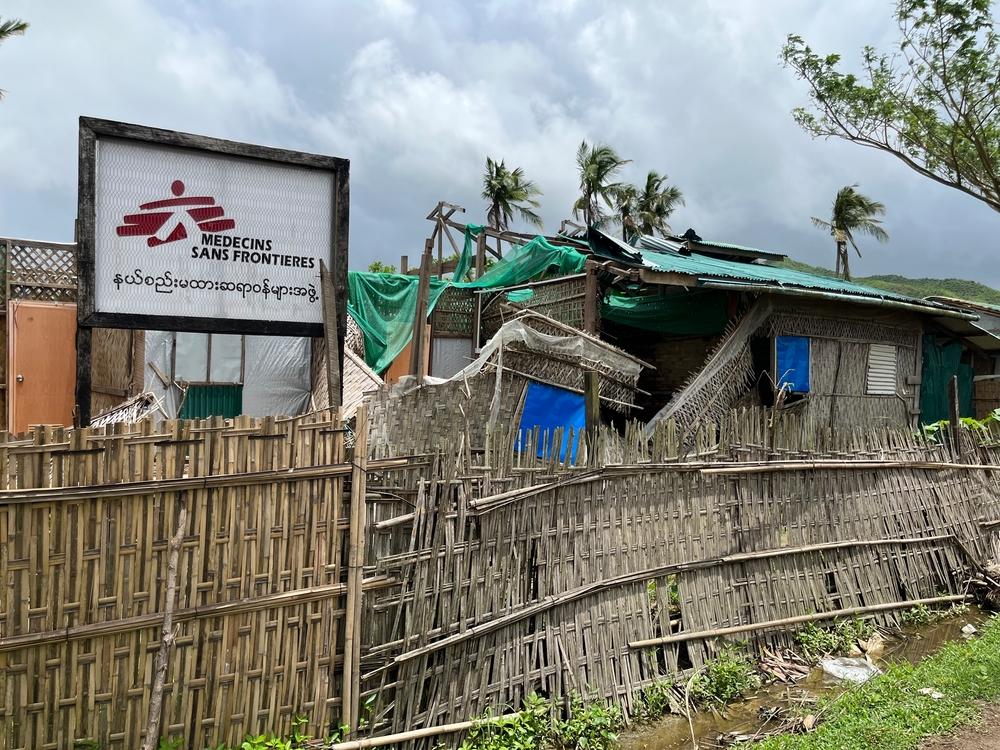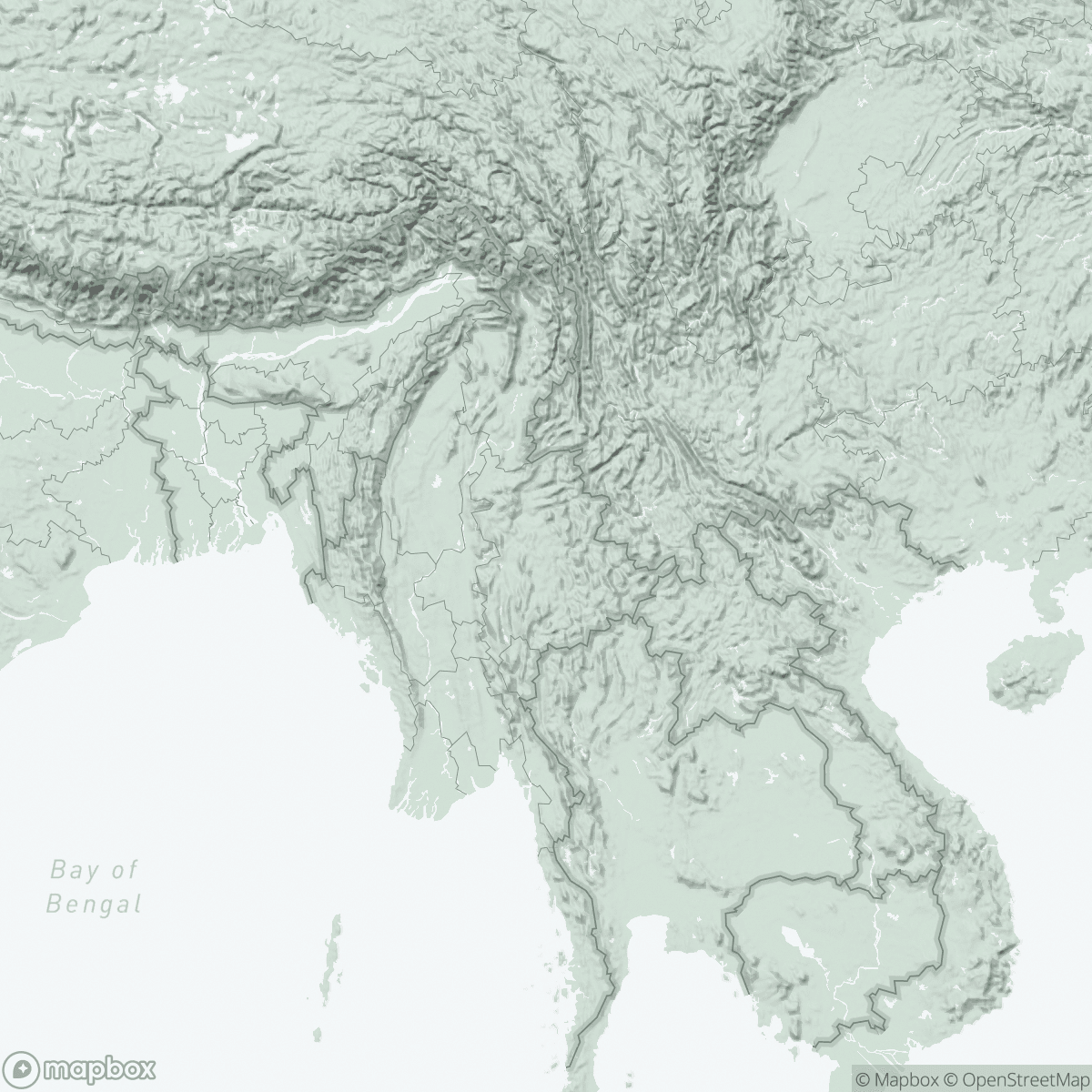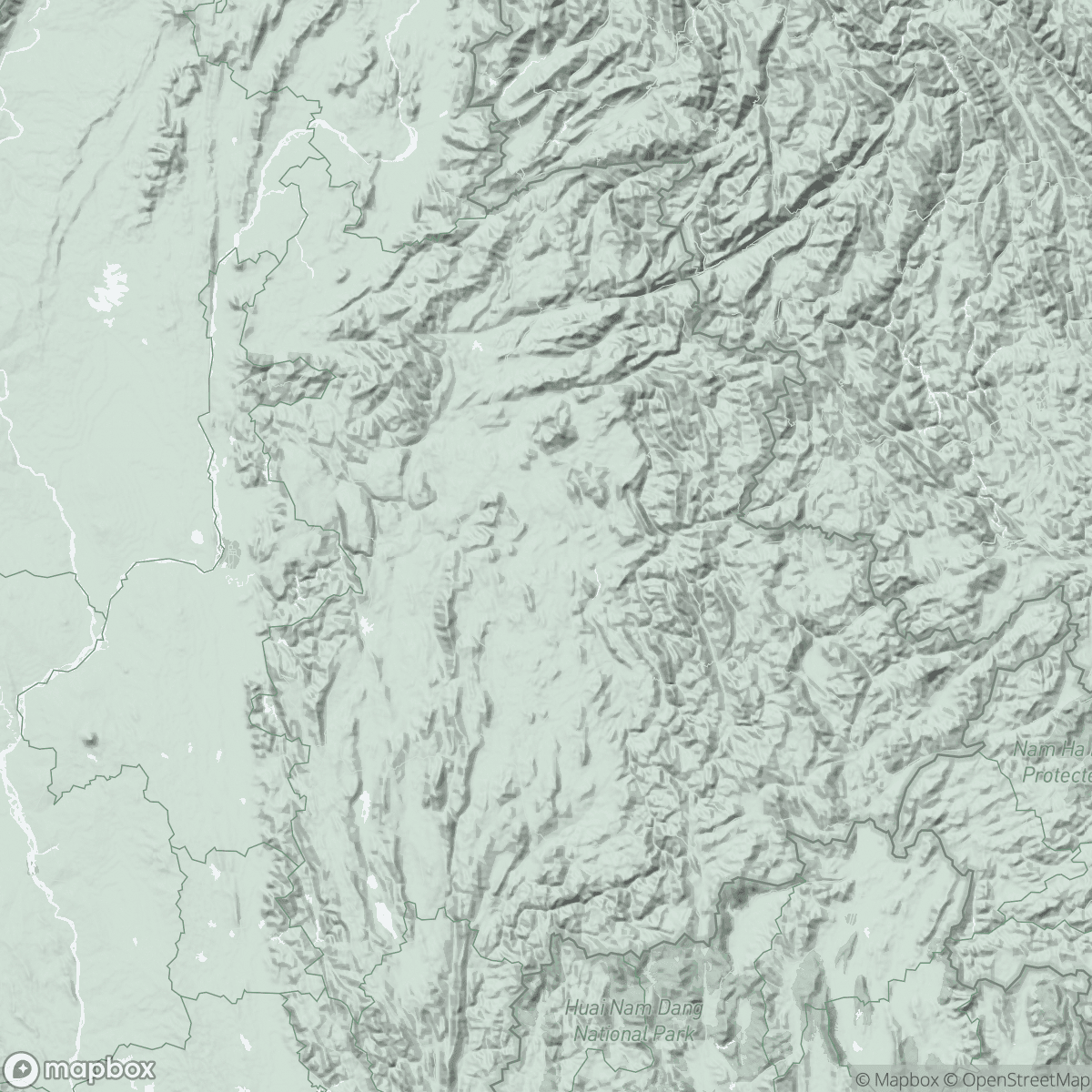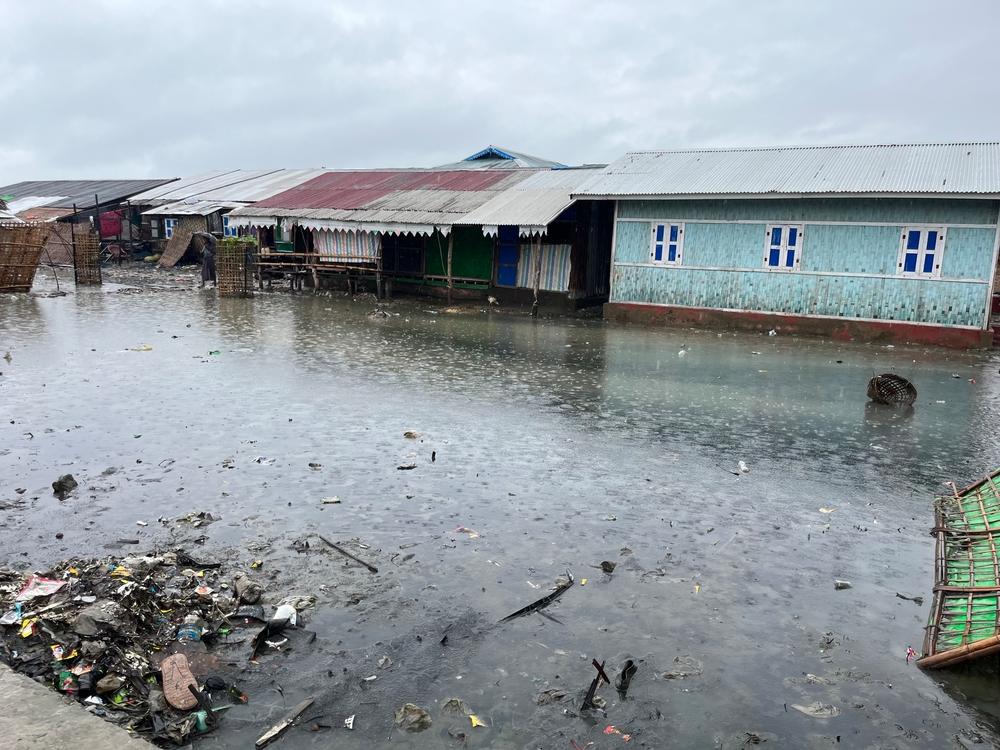
Cyclone Mocha: aid efforts severely hampered by new restrictions
In 1 click, help us spread this information :
About 85 per cent of the city is in ruins after Cyclone Mocha wreaked havoc here. All hut-like houses are destroyed. People who live in houses like these are in dire need of emergency aid since they have no place to stay,” says Daw Saw Nu, MSF community health worker living in Sittwe.
Those most severely impacted by Cyclone Mocha are communities who are already displaced by conflict and often living in camps, people living in low-lying areas, as well as people living in remote areas, far from where assistance efforts have been concentrated.
Shelter, reconstruction of destroyed or damaged water and sanitation infrastructure, safe drinking water, food, and access to healthcare remain the most urgent, vast and unmet needs.
This destruction comes on top of existing hardship, particularly for Rohingya and ethnic Rakhine communities displaced by conflict and already heavily reliant on humanitarian assistance. For Rohingya people specifically, they face severe restrictions on all aspects of their life such as freedom of movement, access to healthcare, livelihood opportunities and education.
Initial response shows positive engagement possible
As the scale of destruction became clearer by the end of May 2023, humanitarian organisations readied themselves to scale up and prevent further loss of life and suffering. MSF prioritised prevention of water-borne diseases through distribution of drinking water to 9,000 people per week and repairs of destroyed latrines and water systems. We were also gradually resuming our regular mobile clinics, and emergency medical referrals for patients in need of more specialised treatment.
This came to a halt on 8 June when three weeks after the cyclone hit, travel authorisations for Rakhine state were suspended temporarily. Revoking MSF’s travel authorisations meant we were unable to open any of our 25 primary healthcare clinics and provision of life-saving medical humanitarian assistance covering an estimated 214,000 people in central Rakhine and 250,000 people in northern Rakhine was disrupted.
After a three-day interruption, activities were officially permitted to resume on 11 June but only those already agreed before the cyclone. Authorisation to scale up responses based on the additional needs created by the cyclone were not granted.
Today, the current response is far from what is required after a cyclone. Among the restrictions imposed on scaling up is a requirement to hand over relief items to the military authorities who will manage distribution. MSF is deeply concerned that the dire living conditions the cyclone has caused, the unnecessary restrictions that actively sustain these unacceptable conditions, and the lack of public attention being drawn to this situation are gradually becoming the new normal in Rakhine.


